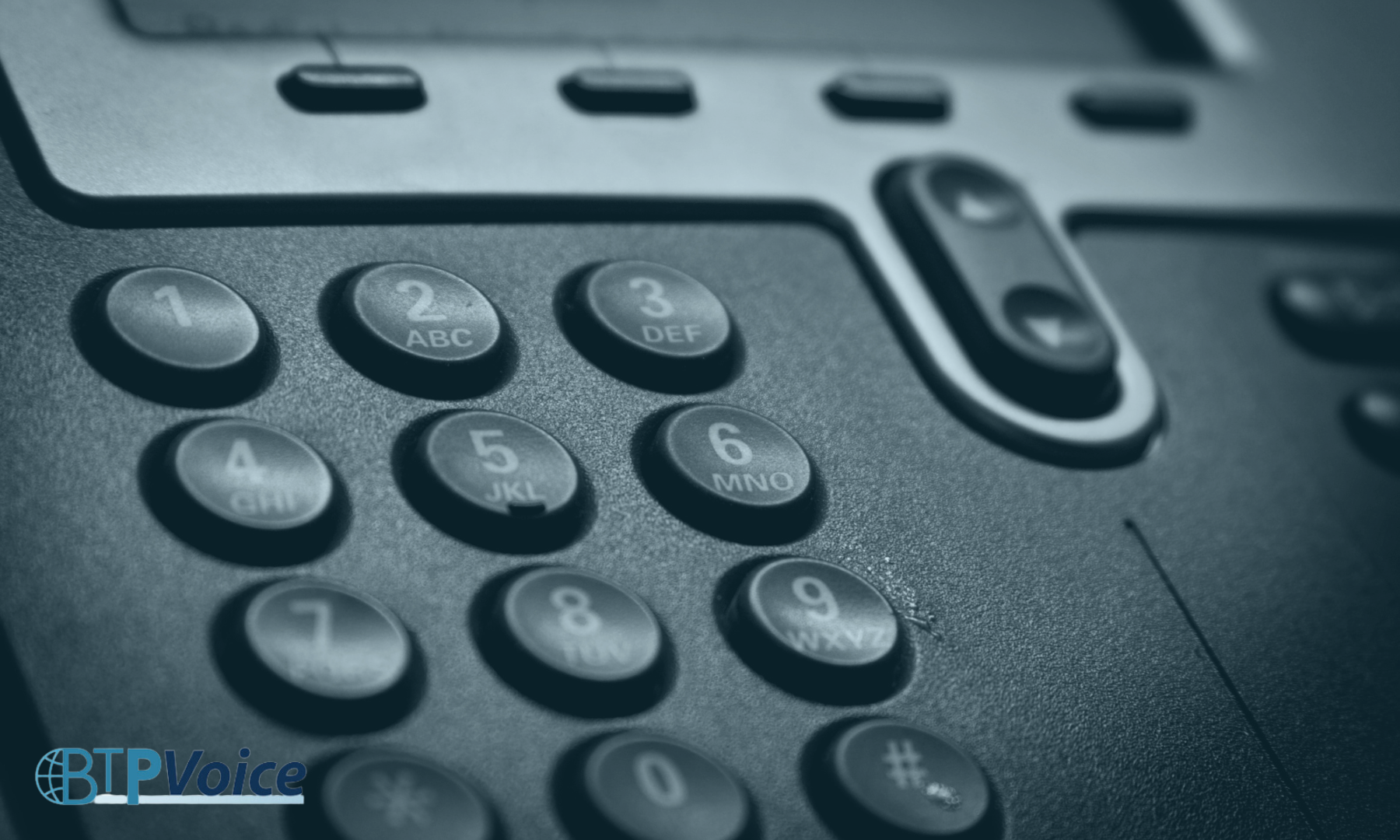How Cloud Phone Systems Are Transforming Business Communications
Cybersecurity solutions for small businesses

Introduction
Imagine this: you're sitting at your desk, going about your day as usual, when you get a call from your accountant. He tells you that your company's bank account has been hacked, and all of your money has been transferred to a foreign country.
This is every small business owner's worst nightmare. And unfortunately, it's becoming more and more common. In fact, according to a study by Hiscox, 60% of small businesses have been the victim of cybercrime.
Luckily, there are steps you can take to protect your business from cybercrime. In this article, we'll discuss some of the most effective cybersecurity solutions for small businesses.
Defining Cybersecurity for Small Businesses
So what is cybersecurity? Simply put, it's a way to protect your computer networks and data from unauthorized access or theft. And as a small business owner, you need to be aware of the risks and take steps to protect yourself and your company.
There are many different ways to do this, and it's important to find the right solution for your business. You need to make sure that your systems are secure and that your data is backed up regularly. You also need to be careful about who you share information with and make sure that your passwords are strong and unique.
There are many different cybersecurity solutions available, and it's important to find the right one for your business. Talk to your IT provider about the options that are available and find out what's best for you.
The Growth of Cybersecurity Threats
Small businesses are a prime target for cybercrime. Why? Because they're often perceived as being weak and vulnerable.
But the reality is that small businesses can be just as secure as larger organizations—if not more so. It just takes a bit of effort and the right cybersecurity solutions in place.
You need to make sure you have a comprehensive security plan that covers everything from your network to your employees. You also need to be vigilant about updates and patches, and make sure you're using the latest security software and hardware.
And don't forget about training! Employees need to be aware of the dangers of cybercrime and how to protect themselves and your business.
Three Pillars of Cybersecurity
There are three main pillars of cybersecurity that you need to be aware of:
1. Protect your devices: Make sure you have up-to-date antivirus software and a firewall installed on all of your devices.
2. Protect your data: Use strong passwords and two-factor authentication, and encrypt your data whenever possible.
3. Protect your people: Train your employees on cybersecurity best practices, and make sure they're aware of the dangers of phishing attacks and other scams.
If you can protect your devices, data, and people, you'll be in good shape when it comes to cybersecurity. But it's important to remember that no one is 100% safe, so you need to be prepared for the worst case scenario.
Basic Cybersecurity Solutions for Small Businesses
So, what can you do to keep your small business safe from cybercrime? Here are a few basics:
1. Make sure your systems are up-to-date and patched. Hackers are always looking for vulnerabilities, so make it hard for them by keeping your software up-to-date.
2. Use strong passwords and change them regularly. This one is a no-brainer, but you'd be surprised how many people still use weak passwords.
3. Install antivirus software and make sure it's up-to-date. This is another essential piece of software that can help protect your system from malware and other threats.
4. Restrict access to sensitive data. If you don't need to share your data with everyone, don't! Restrict access to only those who need it.
5. Educate your employees about cybersecurity. Make sure they know how to protect themselves online, and what to do if they think their computer has been hacked.
6. Backup your data regularly. This is a critical step in protecting your data in case of a cyberattack.
Implementing Cybersecurity in Your Small Business
So, you're a small business owner. Congratulations! You've worked hard to get where you are, and you're ready to take your business to the next level. But as you grow, you need to make sure that you're taking the necessary precautions to protect yourself from cybercrime.
Cybersecurity is a big topic, and we could spend hours talking about it. But for the sake of this article, let's focus on the basics. Here are a few tips for implementing cybersecurity in your small business:
1. Install a firewall and anti-virus software on all of your devices.
2. Create strong passwords and don't use the same password for multiple accounts.
3. Be vigilant about phishing scams and never open suspicious emails or attachments.
4. Make sure your employees are aware of the dangers of cybercrime and how to protect themselves.
5. Regularly back up your data in case of a ransomware attack.
These are just a few basic steps that you can take to help protect your business from cybercrime. For more information, consult with an expert in cybersecurity solutions.
Measuring the Effectiveness of Your Cybersecurity Solutions
Are you confident that your small business is safe from cybercrime? If not, it's time to take a closer look at your cybersecurity solutions and measure their effectiveness.
It's not enough to just have a firewall and anti-virus software in place. You need to be proactive about your security and stay ahead of the curve. That means regularly testing your systems and making changes as needed.
You also need to make sure that your employees are aware of the dangers of cybercrime and know how to protect themselves. Training is essential, and you should also have a plan in place for when (not if) an attack happens.
By taking these steps, you can rest assured that your business is safe from cybercrime.
What Every Small Business Needs To Know About Cybersecurity Program For Their Company
You may not know this, but every small business needs a cybersecurity program. It's not enough to just have antivirus software and hope for the best. You need a plan in place to protect your company from cybercrime.
But where do you start? It can be overwhelming trying to figure out where to begin, but don't worry, we're here to help. First, you need to understand the different types of cyberattacks that are out there. Here are a few of the most common ones:
-Phishing attacks: This is when someone tries to get access to your information by pretending to be someone else. They might send you an email that looks like it's from your bank, for example, asking you to click on a link or provide your personal information.
-Malware: This is software that's been designed to damage or disable computers. It can be sent through email attachments, infected websites, or even USB drives.
-Ransomware: This is a type of malware that locks you out of your computer or files until you pay a ransom.
Once you know what types of attacks to look out for, you need to start developing your cybersecurity plan. This includes setting up firewalls, training your employees on how to spot phishing attacks, and encrypting your data.
How To Be A Cybersecurity Hero For Your Small Business
You're the small business owner. The CEO. The one in charge. And that means you're the one responsible for cybersecurity. It's a tough job, but it's important, and you can't afford to take it lightly.
So what can you do to make sure your business is safe from cybercrime? Here are a few tips:
1. Make sure your employees are aware of the dangers and know how to spot a phishing attack.
2. Install a good antivirus program and keep it up-to-date.
3. Create strong passwords and don't use the same ones for different accounts.
4. Regularly back up your data so you can recover in case of a cyberattack.
5. Educate yourself about cybersecurity threats and how to protect your business.
6. Have a plan in place for when (not if) a cyberattack occurs.
7. Stay vigilant and be prepared to take action if you see anything suspicious.
8 Be A Cybersecurity Hero For Your Small Business
Conclusion
As a small business owner, it's important to take the necessary precautions to protect your company from cybercrime.
Here are a few simple ways to keep your business safe online:
- Install antivirus software and keep it up-to-date
- Create strong passwords and never use the same password for more than one account
- Make sure your employees are aware of the dangers of cybercrime and how to protect themselves
- Regularly back up your data
By following these simple tips, you can help keep your business safe from cybercrime.











